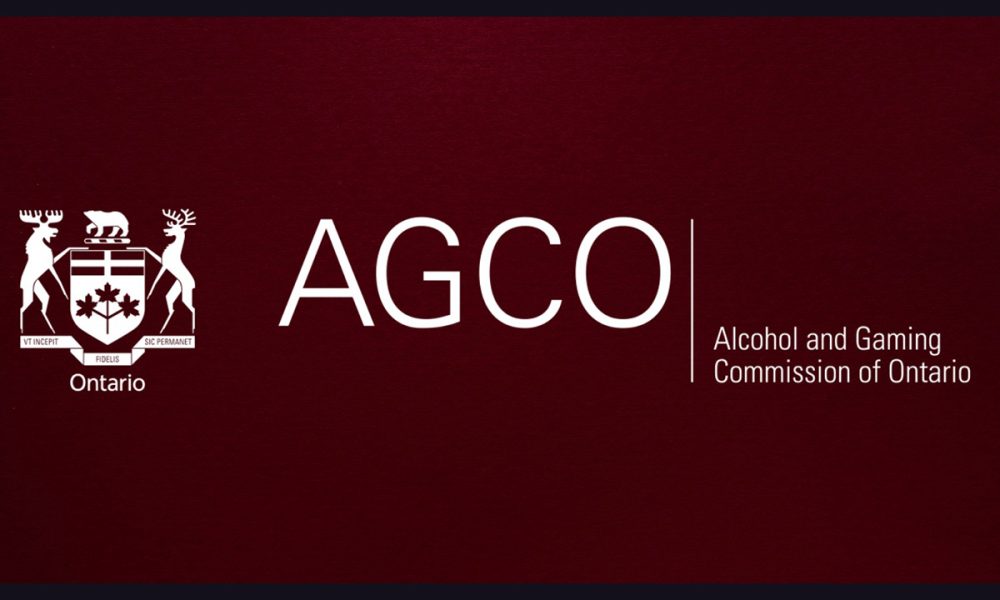

Canada
Mobile Sports Bettors Show Greater Resilience and Sensitivity to Economic Headwinds
In the midst of rising inflation and its impact on consumer personal savings rates, TransUnion (NYSE: TRU) conducted new research examining the financial status and behaviors of consumers who engage in mobile sports betting. The research found that more than half (54%) of mobile sports bettors earn high incomes—earning $100,000 or more—yet many are concerned about inflation and its impact on their ability to keep making credit payments in the future.
While the vast majority of mobile sports bettors appeared to be in good financial standing based on their incomes and savings, a higher percentage indicated they have trouble paying bills and are using short-term credit services, like payday loans compared to the total population. The research was conducted via an online survey of 2,739 adults in May 2022. A full report of the findings is available in the new “Consumer Pulse Online Sports Betting Study.”
“At face value, most of the consumers engaging in mobile sports betting can likely afford to do so,” said Declan Raines, head of U.S. Gaming at TransUnion. “At the same time, our findings demonstrate how important it is, especially during a time of economic uncertainty, that operators utilize comprehensive data to identify both resilient and distressed consumers. Doing so can help operators protect players and provide a safer experience to consumers engaged in regulated betting.”
Mobile sports bettors are well funded, mostly optimistic
One key trend derived from the report: mobile sports bettors are seeing increased incomes and are generally more optimistic than most consumers.
Mobile Sports Bettors More Optimistic About their Finances
| Total Population | Mobile Sports Bettors | |
| Income Increased Last Three Months | 32% | 67% |
| Expect Income to Increase Next Three Months | 45% | 71% |
| Optimistic About Household Finances Over Next 12 Months | 58% | 83% |
Mobile sports bettors are also more likely to be employed, with 89% currently employed vs. 81% of the total population. In addition, 22% of mobile sports bettors indicated they had changed jobs for higher compensation in the last three months, compared to 7% of the wider population.
Despite strong financial performance and general optimism, mobile sports bettors expressed concern over inflation and more are taking action to protect themselves financially to mitigate the costs. TransUnion’s analysis found mobile sports bettors are saving more money in emergency funds and paying down debt faster than the total population. In addition, they also increased their use of available credit and used retirement savings at higher rates than the total population.
The research also identified a positive correlation between consumer liquidity and the gambling industry’s performance at both the macro and state level. Given this established relationship, the current financial hedging behavior exhibited by mobile sports bettors could likely indicate a slowdown in the near future for the sports betting industry.
“Consumer liquidity was a critical component of this research,” said Raines. “Tracking it and its relationship to the industry’s performance can help operators understand how wider economic factors can impact share of wallet, lifetime player value and responsible gaming risk.”
More trouble paying bills
Another indicator of decreasing consumer liquidity is that 79% of mobile sports bettors were concerned about their ability to pay current bills and loans in full, compared to 52% of the total population. In addition, mobile sports bettors are using payday lending services at higher rates than the total population.
The report highlights the challenges operators face in identifying resilient or distressed consumers. Operators who rely solely on their first-party data are limiting their view of a player without the complete picture. Those who use more data sources are able to better monitor player stability and assess risky behavior leading to appropriate interventions, like cooling off periods, to help ensure sustainable play. Operators are at a significant advantage for enhancing responsible gaming practices when they leverage third-party data as is common in other global markets like the U.K.
“The obvious benefit of a robust responsible gaming strategy is helping to keep players out of financial trouble, improving brand loyalty and ensuring sustainable revenue,” said Raines. “Beyond that, it also demonstrates proactive efforts that improve public sentiment toward the industry overall, which is necessary if the market wants to see increased support for state access across sportsbook and online casino products.”
Impact on credit health
Mobile sports bettors, especially those concerned about paying bills in full or who have bills already past due, should be mindful of their credit health. “Payment history and credit utilization rate, a measure of how much of available credit someone is using compared to their total credit limit, are two of the major credit scoring factors,” said Margaret Poe, head of consumer credit education at TransUnion. “Missing payments and running up credit balances can have a severe, negative impact on a consumer’s credit score.”
Many mobile sports betting websites and apps allow deposits using credit cards, a high-interest form of revolving credit, so it’s imperative for sports bettors to understand how to gamble responsibly and practice healthy credit habits to ensure their financial well-being is not negatively impacted.
For more information about the research, read the “Consumer Pulse Online Sports Betting Study.”
RESEARCH METHODOLOGY
This online survey of 2,739 adults was conducted May 12–19, 2022 by TransUnion in partnership with third-party research provider, Dynata. Adults 18 years of age and older residing in the United States were surveyed using an online research panel method across a combination of desktop, mobile and tablet devices. Survey questions were administered in English. All states are represented in the study survey responses. To ensure general population sample representativeness across United States resident demographics, the survey included quotas to balance responses to the census statistics on the dimensions of age, gender, household income, race and region. Generations are defined as follows: Gen Z, born 1995–2004; Millennials, born 1980–1994; Gen X, born 1965–1979; and Baby Boomers, born 1944–1964. These research results are unweighted and statistically significant at a 95% confidence level within ±1.87 percentage points based on calculated error margin.
AGLC
Casino ATM Scam in Edmonton Reveals Money Laundering and Drug Links

Law enforcement in Alberta continues to search for the last suspect in a sophisticated fraud operation that targeted ATMs in Edmonton-area casinos and resulted in over CAD 1 million ($720,487) in losses throughout Western Canada.
The Royal Canadian Mounted Police (RCMP) has confirmed that Hisham Ismaeel, 28, remains at large with a province-wide warrant for his arrest. He faces charges of fraud exceeding $5000 and possessing proceeds of crime. Police have already arrested four other men linked to the scheme. Investigators describe the operation as a well-planned effort to exploit financial systems and clean dirty money.
The accused, Elliot Miao, 42, Van Bau Ta, 39, Hassan Jaafar Haydar Ahmad, 37, and Dennis Jones, 42, showed up in the Alberta Court of Justice last week. They face charges from fraud and money laundering to owning criminal property. Miao also has a narcotics trafficking charge after police found cocaine when they searched with warrants.
Investigators claim the group made coordinated withdrawals at several casino ATMs, timing their transactions to avoid getting caught. This action messed up ATM networks in the area and showed flaws in the systems that banks and casinos use to stop misuse.
The RCMP Federal Policing Northwest Region led an investigation that involved six search warrants in Edmonton. The Edmonton Police Service, the Financial Transactions and Reports Analysis Centre of Canada (FINTRAC), Alberta Gaming, Liquor and Cannabis (AGLC), and several banks supported this effort. Officials said the case shows how teamwork between public agencies and the private sector plays a key role in combating modern financial crime.
AGLC representatives pointed out that casino operators in the province must follow strict reporting and surveillance rules under Canada’s anti-money laundering laws. The specific casinos affected remain unnamed, but the Edmonton region has seven licensed facilities. AGLC said its policies helped spot problems and backed the RCMP’s investigation.
Compliance experts say this fraud shows how criminals change their methods to take advantage of weak spots in reporting limits and transaction checks. They claim that casinos, which deal with lots of cash, are still easy targets unless they keep improving their detection systems and teach their front-line workers to notice coordinated actions like several big withdrawals happening one after another.
For now, the case highlights both the money and crime aspects of casino-related fraud. Besides the million-dollar losses, finding drugs during the raids points to a bigger criminal operation where financial crimes and drug dealing overlap.
The post Casino ATM Scam in Edmonton Reveals Money Laundering and Drug Links appeared first on Gaming and Gambling Industry in the Americas.
Bragg Gaming
Bragg Confirms Cyber Attack – Hackers Access Internal IT Systems

Bragg Gaming Group, a leading online gaming technology provider, has confirmed a major cybersecurity incident that compromised its internal IT infrastructure in the early hours of Saturday, August 16, 2025.
The company detected unauthorized intrusion attempts that successfully breached its internal network, triggering an immediate and comprehensive incident response.
Key Takeaways
-
Bragg Gaming Group experienced a cybersecurity breach involving access to internal IT systems.
-
No customer personal data or payment information appears to have been compromised.
-
The company has enacted full containment and investigation protocols.
Details of the Breach
According to a preliminary forensic analysis by Bragg’s internal security team, the attack was a targeted breach aimed at the company’s internal computer environment. While the exact method of intrusion is still under investigation, early indicators suggest a sophisticated exploit of internal network vulnerabilities.
Fortunately, the company’s customer-facing systems, including sensitive user data and financial information, appear to have been unaffected. Bragg’s existing encryption protocols and access control systems successfully prevented the attackers from accessing customer information.
Immediate Response Measures
In response to the breach, Bragg launched a multi-tiered containment strategy, including:
-
Network Segmentation to isolate affected systems
-
Enhanced Monitoring of data flows across its Remote Games Server (RGS) platform
-
Security Audits of critical infrastructure, including the Bragg Hub and PAM systems
-
Engagement of Independent Cybersecurity Experts to assist in incident analysis and system hardening
Bragg’s Security Operations Center has also elevated its alert level, initiating 24/7 monitoring across all server clusters and network endpoints. In addition, company-wide penetration testing is now underway to proactively identify any residual vulnerabilities.
Business Continuity Maintained
Despite the severity of the breach, Bragg reports that its operations remain unaffected. All gaming services, including iCasino and sportsbook offerings across regulated markets, continue to function without disruption.
“While this incident is deeply concerning, we are confident in the rapid and thorough response initiated by our team,” a company spokesperson stated. “We remain committed to protecting our infrastructure, our partners, and most importantly, our players.”
Looking Ahead
As part of its response, Bragg has also launched mandatory security awareness training for all employees to reinforce best practices and prevent future incidents.
Cybersecurity analysts will continue working with Bragg to determine the full scope of the attack, improve system resilience, and maintain the trust of its users and stakeholders.
Bragg’s handling of the incident highlights both the evolving nature of cybersecurity threats and the importance of robust, responsive defense systems in the digital gaming sector.
Source: cybersecuritynews.com
The post Bragg Confirms Cyber Attack – Hackers Access Internal IT Systems appeared first on Gaming and Gambling Industry in the Americas.
AGCO
AGCO Removes Cap on Seller Commission for Charitable Lottery Products

The Alcohol and Gaming Commission of Ontario (AGCO) has updated several lottery policies to remove the cap on seller commission for Paper Raffles and Media Bingo, along with removing the prohibition on Catch the Ace paper lotteries, to align with other charitable lottery products.
Licensed charities may now negotiate commissions directly with sellers and determine commissions, provided they are reasonable and tied to the cost of service provided by the seller.
These updates further the AGCO’s commitment to adopt an outcomes-based regulatory approach and reduce burden for the charitable gaming sector. Local charitable organizations will have greater flexibility to make decisions that best serve their fundraising objectives.
Important Reminders
• Charities must still receive approval for other expenses incurred under their licence and retain receipts for seller commission paid.
• Licensing authorities will not require documentation to be submitted as part of the application process, however, charities are still subject to audit to determine compliance.
• Charities are reminded of their legal requirement to meet their obligations under the Criminal Code and with respect to conducting and managing a charitable gaming scheme.
• As with all licensed charitable lottery events, charities must take the necessary steps to ensure that they are conducting and managing the lottery event within Ontario.
For charitable gaming-related inquiries, email an AGCO Eligibility Officer at [email protected] or call AGCO Customer Service at 1-800-522-2876, Monday to Friday from 8:30 a.m. to 5 p.m.
The post AGCO Removes Cap on Seller Commission for Charitable Lottery Products appeared first on Gaming and Gambling Industry in the Americas.
-

 gaming3 years ago
gaming3 years agoODIN by 4Players: Immersive, state-of-the-art in-game audio launches into the next generation of gaming
-
EEG iGaming Directory8 years ago
iSoftBet continues to grow with new release Forest Mania
-
News7 years ago
Softbroke collaborates with Asia Live Tech for the expansion of the service line in the igaming market
-
News7 years ago
Super Bowl LIII: NFL Fans Can Bet on the #1 Sportsbook Review Site Betting-Super-Bowl.com, Providing Free Unbiased and Trusted News, Picks and Predictions
-
iGaming Industry8 years ago
Rick Meitzler appointed to the Indian Gaming Magazine Advisory Board for 2018
-
News7 years ago
REVEALED: Top eSports players set to earn $3.2 million in 2019
-
iGaming Industry8 years ago
French Senator raises Loot Boxes to France’s Gambling Regulator
-
News7 years ago
Exclusive Interview with Miklos Handa (Founder of the email marketing solutions, “MailMike.net”), speaker at Vienna International Gaming Expo 2018






